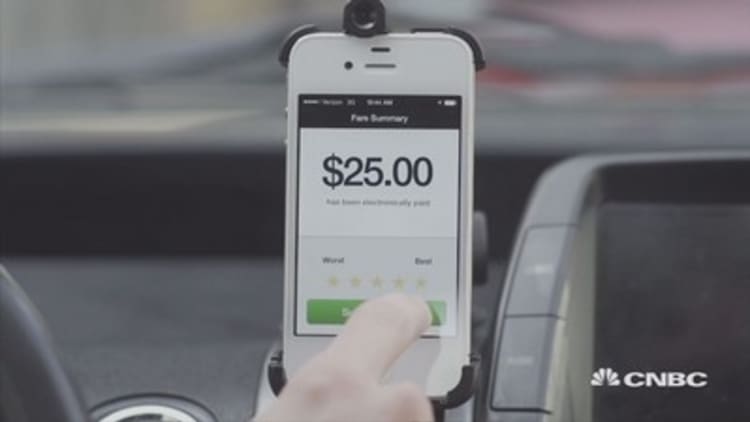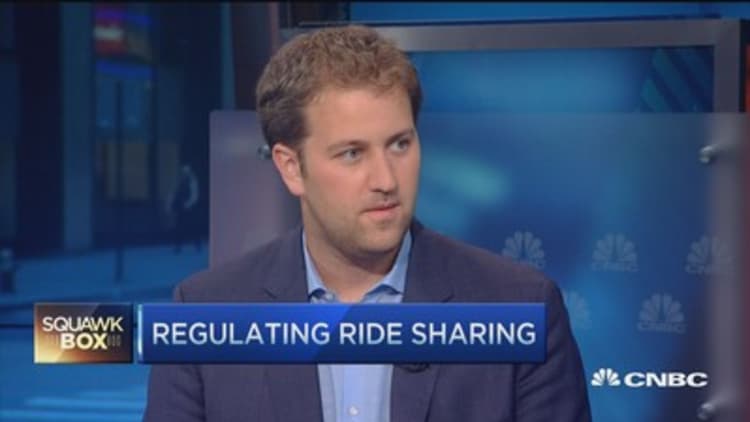
A federal judge in San Francisco has granted Uber drivers class-action status in a lawsuit that claims the ride-hailing service treats drivers like employees without offering benefits, and avoiding costs associated with payroll taxes.
The ruling, late Tuesday, sets the stage for a legal showdown that could have wide-ranging effects for Uber's business model—and the broader sharing economy—that connects independent contractors with available work. While many Americans have cobbled together a patchwork of part-time gigs, the usually small jobs and projects don't often come with traditional safety nets including health insurance or retirement planning. This sharing economy sometimes is referred to as the on-demand, or gig economy.
In this particular legal battle, three Uber drivers are suing to be classified as employees instead of independent contractors. The drivers also want reimbursement for fuel and related mileage costs they've covered themselves out of pocket.
"Of all the cases in the on-demand economy, this is the one with the most potential liability in terms of individual drivers, because of Uber's size and the relatively larger expenses of operating the car," said Rebecca Smith, deputy director of the National Employment Law Project, an advocacy group for employment rights. "Uber should do the right thing, and reclassify these workers."
Uber says it will "likely" appeal the decision as "partners use Uber on their own terms, and there really is no typical driver—the key question at issue," according to a statement emailed to CNBC.

As more Americans stitch together a flexible work schedule, more start-ups have emerged in the sharing economy space. And in recent months, some of those new businesses have already moved to classify their workers as employees.
Contractor or employee?
Shipping start-up Shyp, same-day delivery company Instacart and home cleaning upstart Homejoy—all based in San Francisco along with Uber—have changed some of their worker classifications to employees in recent months.
Read More
In the case of Shyp and Homejoy, those two start-ups had faced lawsuits, seeking to classify workers as full-time employees. San Francisco broadly has become a focal point for labor cases against on-demand companies.
"I think we will see more companies deciding they would rather switch to an employee model than fight this," said NELP's Smith. "The status is one of integration. Uber can't escape that their company wouldn't exist without these particular workers doing their particular jobs."
Meanwhile, at least one federal agency already has stepped into the sharing economy fray, and classification of workers.
In a ruling last month, the National Labor Relations Board broadened the definition of "employer." The board concluded a sanitation company, Browning-Ferris Industries, and a subcontractor are joint employers of workers.
Read MoreNLRB ruling redefining 'employer' could have big impact
Some tech companies in the sharing economy, however, contend they're not employers but merely platforms for buyers and sellers of services to connect.


